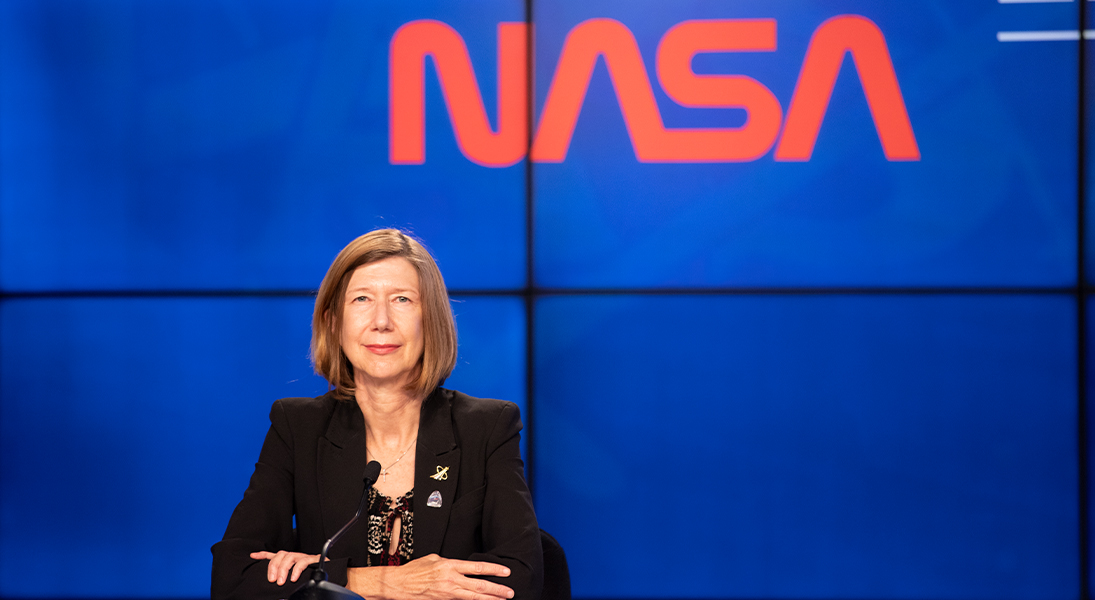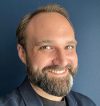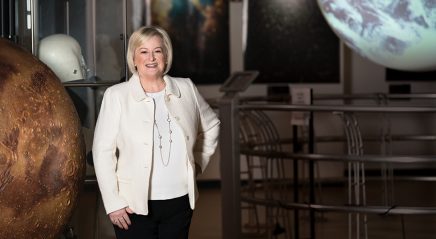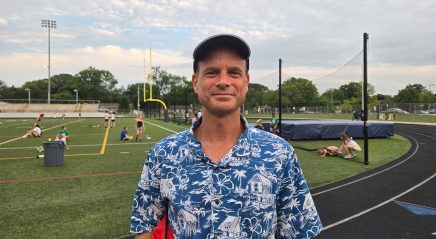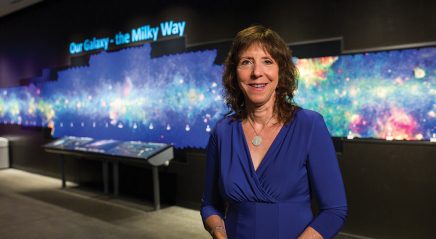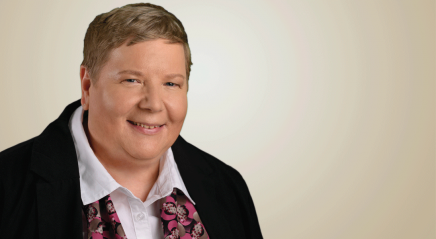Lutheran Church of the Resurrection, Cocoa Beach, Fla.
Retired NASA associate administrator of the Human Exploration and Operations Mission Directorate; SpaceX Starbase general manager
In 2015, our family moved from Merritt Island [Fla.] and were looking for a new church home. We had gone to House of Prayer Lutheran Church [in Houston, Texas], so we were looking for another ELCA church. I visited Lutheran Church of the Resurrection and remember Pastor Jay [Bergstresser] preaching on Matthew 11:29, where Jesus says, “Take my yoke upon you, and learn from me.” At that time, my family was going through great stress with a move, a new job and multiple other life stresses, and this visual of Jesus helping us through that time was very powerful for me.
I think there are three pillars to being part of a church: obviously, the worship together, but then there’s helping the church itself accomplish its mission, and also helping the church help the community. For the past six years, we’ve sponsored a monthly Burger Bash where we feed the food pantry and bicycle ministry customers with a barbecue. I have also served as evangelism chair for many years on the church council.
There’s something very special about coming together weekly to experience God’s love, comfort and message. And it’s even more special when you get to share it with a group of people. When you’ve been meeting together weekly for 10 years, you share each other’s trials and triumphs, and experience what their journey with God means to them. It is a very rich experience.
I accidentally fell into space exploration. I was never a space geek. But the NASA White Sands Test Facility (WSTF) was hiring interns while I was going to New Mexico State University [in Las Cruces], so I was lucky enough to get an internship there working on Space Shuttle orbiter hardware. That provided me with the start of my career at NASA.
My favorite career advice is to really recognize what excites you in a job, and that will help you in your career as you need to make choices about what you want to do. I realized I really enjoyed solving big integration problems and figuring out how to do something that no one else has done.
While I was at WSTF, I was able to figure out how to bring in-house the repair of all of the orbital maneuvering system/reaction control system components, which ended up saving the Shuttle program hundreds of millions of dollars a year in repair costs. It was fun to address the technical issues that always come up with doing something new but also address the programmatic and process challenges with having a NASA center provide services to a large government contract.
Two weeks after I was announced, I received a letter from a girl in India who wrote, “Now that you have that job, I believe I can have that job.”
Another big problem I was able to solve was how to get commercial cargo and crew to the International Space Station. Its success similarly required solving a breadth of different challenges to actually perform the missions. It was painful but also a lot of fun.
In my vocation, every day, there’s something new to figure out, and things are not predictable. I also believe that when we are figuring out how to get things done in space, it shines a different light on something we’re doing here on earth and opens up new opportunities to solve problems we’re having here.
As the first woman to head human spaceflight, I appreciated the opportunity that it created for others. I actually wasn’t that thrilled about leaving NASA’s Commercial Crew Program and becoming associate administrator, but my husband convinced me that it was the right thing to do. Two weeks after I was announced, I received a letter from a girl in India who wrote, “Now that you have that job, I believe I can have that job.” When I look now and see how many women have followed me in program management jobs and as associate administrators at NASA, I have hope that we will stop having to continue to find firsts for us.
Rocket launches are mini miracles—and flying people to space is even more of one. When we flew [astronauts] Bob Behnken and Doug Hurley on the Crew Dragon Demo Mission 2 test flight, I slept in the control center because I felt like I couldn’t leave them. Going to the Johnson Space Center or going home to sleep felt like I was deserting them. So I stayed there with them while they were flying to the International Space Station. When I was able to share opening the hatch with their wives and sons, that meant a great deal.
I wouldn’t be able to get up in the morning without knowing that God is there to walk with me through my journey every day. I honestly do not know how people without faith make it through life. I normally wear a cross necklace, and that has created opportunities where people will ask me about my faith. I appreciate the opportunity to communicate how critical it has been for me. It doesn’t mean you don’t have bad times, but you know that you are not alone—and I cannot tell you how many times a “bad” time has created an enormous opportunity.
I spend my free time with family and friends, exercising, reading, finding ways to help the community.
I pray for everything. Especially for peace right now.
I love that salvation is an unmerited gift. We can’t do anything to get it but believe—but that belief also is a gift. I have not always had faith, but now I do, and I’m very grateful. God’s benevolence even more underscores the importance of the blessings we receive, and the importance of them being shared and applied to others.
I’m a Lutheran because I am aligned with the spiritual and moral precepts of the ELCA. I can sit in a pew and listen to a sermon or participate in the liturgy and there is alignment with the values of Jesus.
If you’d like to nominate someone for “I’m a Lutheran,” email livinglutheran@elca.org.



